The People vs Misogyny
Can we fight online hate with IRL love? 💔
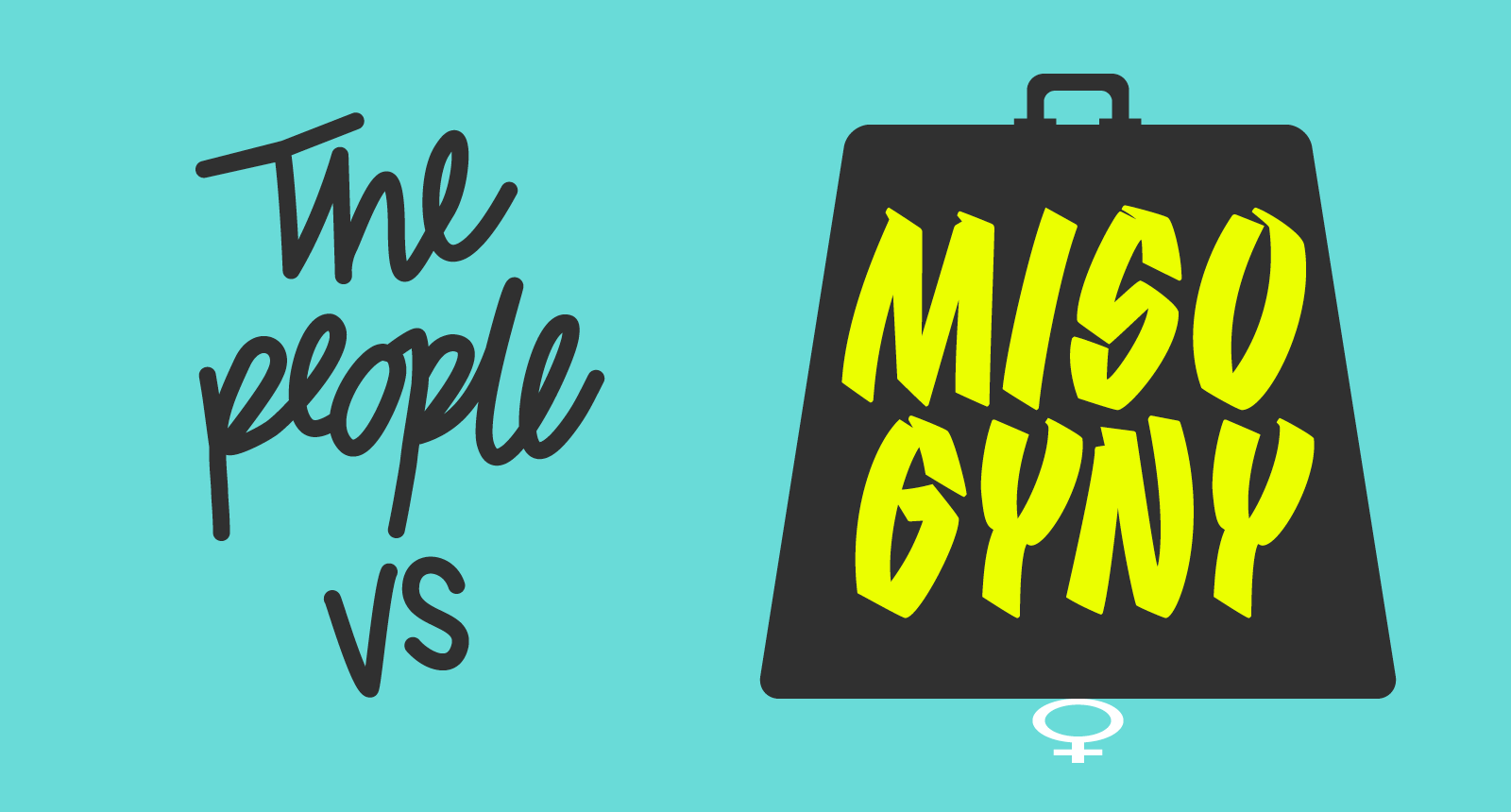
Welcome to the first issue of The People, a new bi-weekly newsletter from People vs Big Tech and the Citizens!
Each issue, we’ll be digging into one online topic that we'll tackle together. With the help of guest experts, we’ll uncover Big Tech’s dirty tricks and suggest actions to take. From AI to algorithms, privacy to political ads, we’ll cut through noisy tech coverage and focus on what is unfair, unsafe, and undemocratic.
Most importantly, we’ll demonstrate how we can collectively regain control of our online lives. We are growing a community of changemakers and we’re excited to have you join us.
This week it’s brought to you by me, Alice McCool (hi!) and I'm taking on online misogyny. From ‘incel’ terrorism to teenage suicides, the real world impact of Big Tech’s amplification of sexist content is terrifying. Join me as I explore how social media is driving a growing gender divide and what we can do about it.
My parallel universe or yours? 👽👽
You may have already seen this video from TikTok user elieli0000 on your social feeds. Taking a break from her usual (pretty great) Princess Diana impression videos, Eli posted about “the most insane example of how everyone is experiencing completely different social medias at the exact same time.” and it gave me a whole other level of algorithm ick.
@elieli0000 ♬ original sound - eli
TikTok / @elieli0000
In the video Eli compares the comments under an Instagram Reel she's seen with how they appear on her boyfriend’s device. The Reel shows a woman complaining that her boyfriend said he would be back hours ago from golf but hasn’t shown up. On Eli’s account, the top comments are supportive of the woman and are critical of her partner. On Eli’s boyfriend’s account, the opposite was true.
So Eli and her boyfriend - despite presumably leading similar lives and having shared interests - have been living in parallel universes. But in a scary…rather than a cool way.
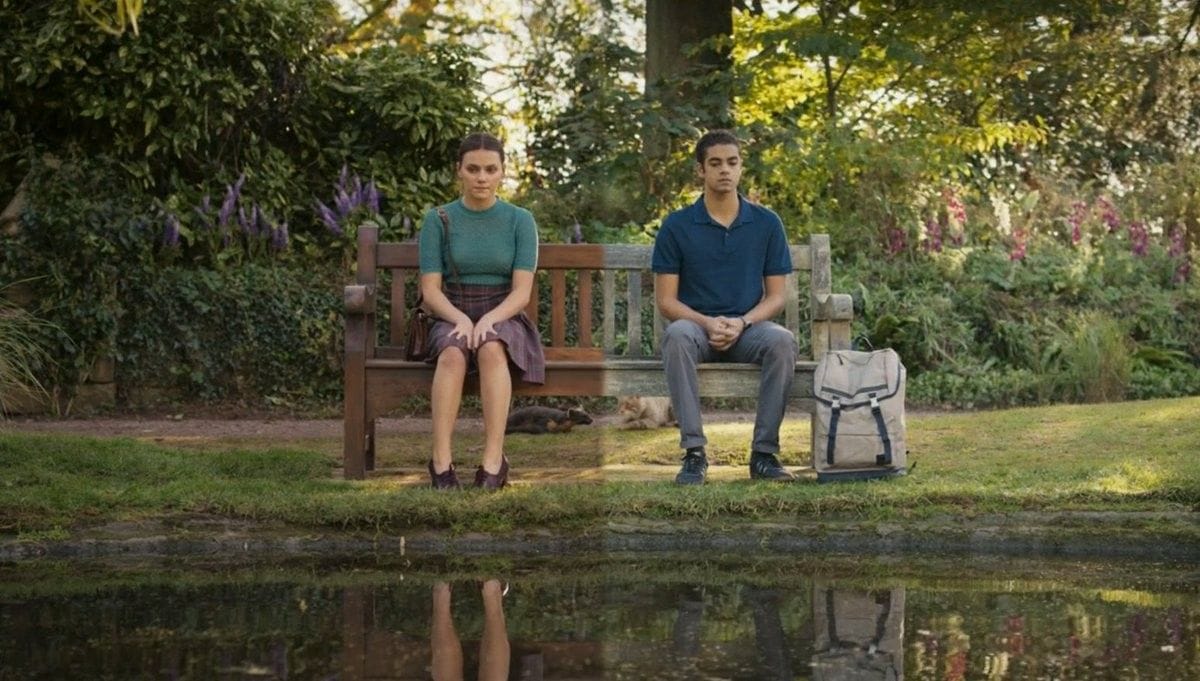
Eli suggests that the only real difference between her and her boyfriend’s interactions on Instagram is that “he’s a guy and I’m a girl”. Are Big Tech algorithms really reducing us all to such binary, stereotypical examples of gender?
Eli also points out that most of us now refer to comments for reassurance. She’s not wrong. We trust the wisdom of the crowd online - even if we do so subconsciously - but should we, when that collective wisdom is apparently being curated based on what the algorithm assumes we will agree with? 🐏🐑
Man I feel like a woman
Over the past few months a flurry of surveys and analyses have found that men and women’s attitudes* towards masculinity and women’s equality are becoming increasingly polarised. It’s part of a broader political divide globally between women, who typically see themselves as more liberal, and men who typically see themselves as more conservative, as you can see in analysis from The Economist here:
*These studies didn’t specify if they included trans people, or feature data on non-binary folk or other gender diverse people, so excuse me while I do get a bit binary here 🙈
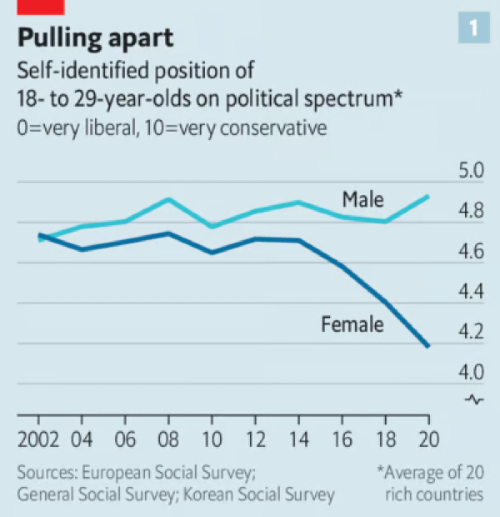
And check out this analysis from the Financial Times suggesting that younger men, in particular, believe women seek to gain power by controlling them. Cool!
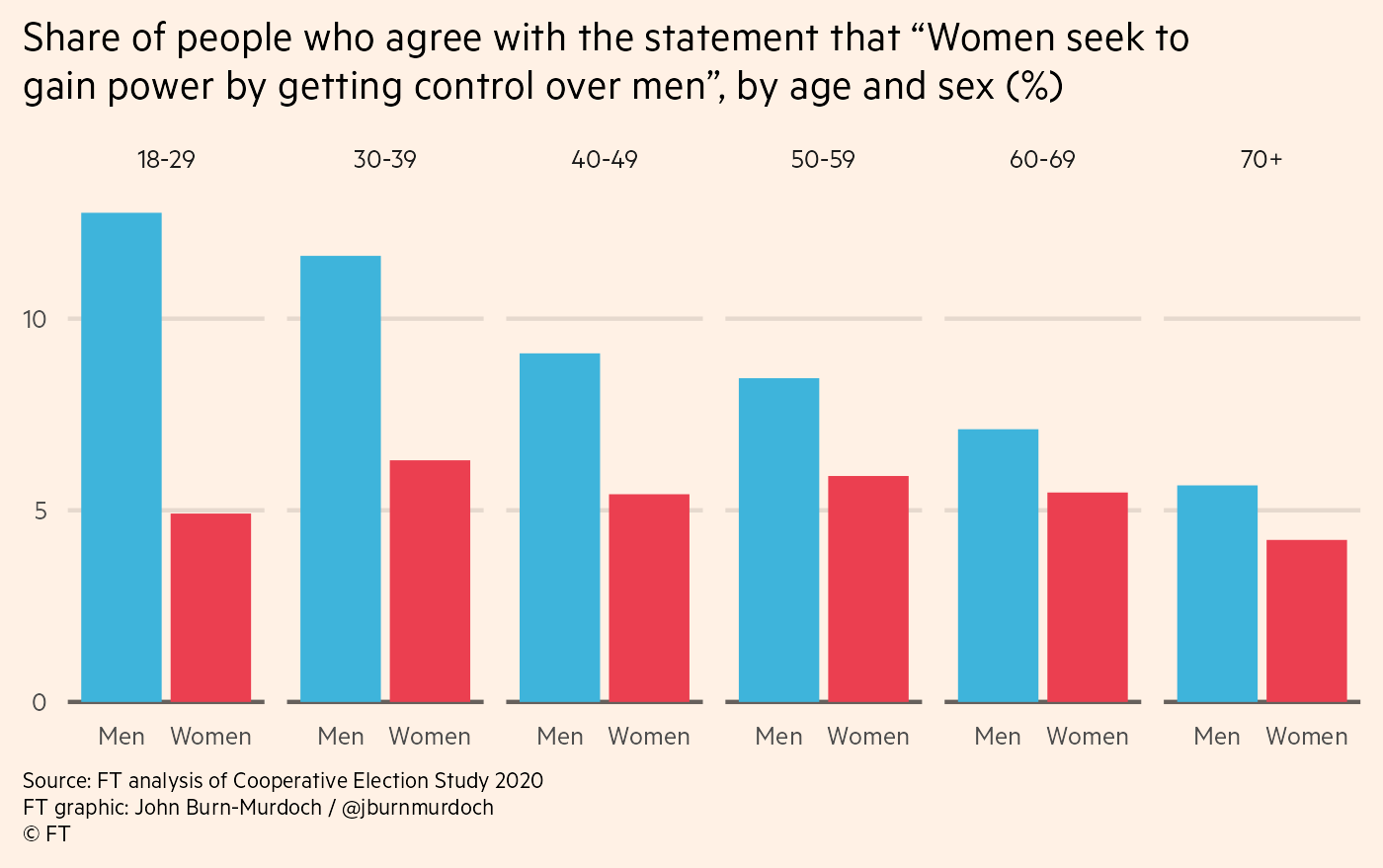
While we know factors like economic stagnation and backlash against the #MeToo movement will have likely contributed to this divide, Big Tech has definitely played a starring role.
Professor Rosie Campbell, an academic behind a UK study of the gender divide in young people, said: “We're just at the beginning of understanding what's driving this but the fact that this group is the first to derive most of their information from social media is likely to be at least part of the explanation.”
It’s me or the algorithm
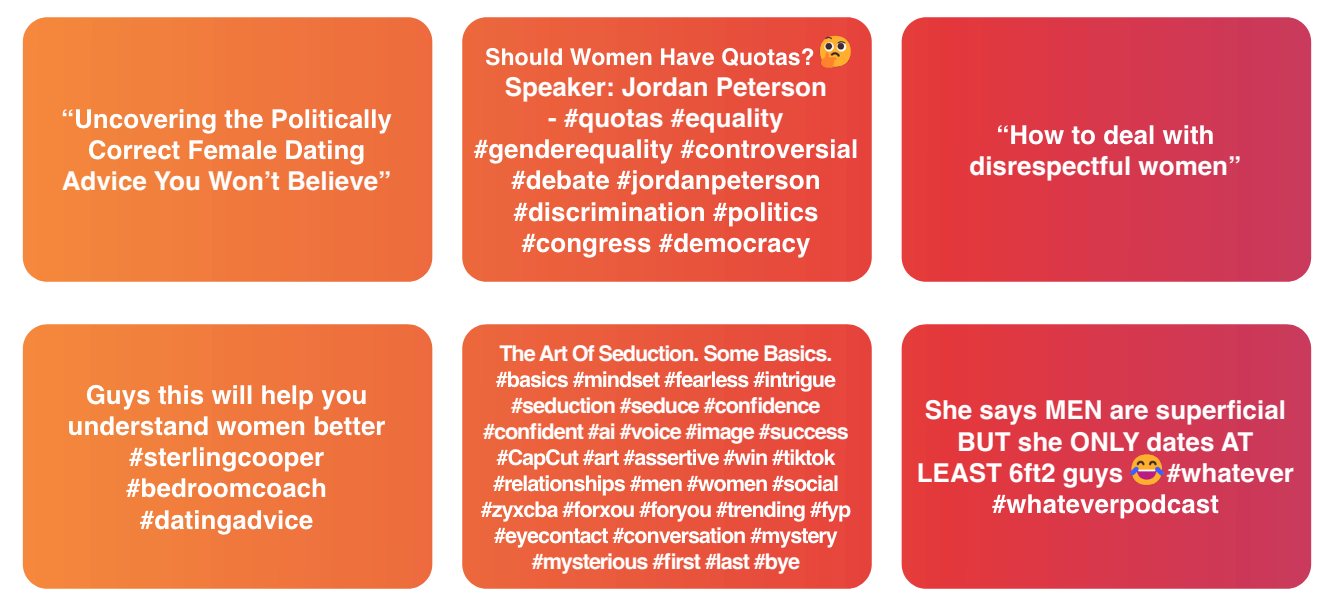
But what evidence is there that our pal the algo and its Big Tech overlords are actually responsible for dividing our societies? Let’s start with what we know: the algo loves sensationalist content. The more extreme or emotionally charged a story is, the more clicks it’s going to get. And clicks mean $$$. Could this be why social media platforms have failed to identify, moderate or remove hate speech targeting women - from Dalit women in India to female journalists in South Africa?
We also know it likes to feed us stories it thinks will appeal to us. This keeps us glued to our phones and increasingly trapped in our own echo chambers. Once the algo knows we are interested in something, it will show us more and more of the same.
It’s not hard to see how this results in harmful content being ‘gamified’ and presented as entertainment, as research from UCL and The University of Kent published earlier this year found. You can see in the chart above that boys and young men can get seduced by misogynistic content, even if they start out researching topics which are not necessarily harmful - such as dating and relationship advice. Even worse is that according to their research on TikTok, the Safer Scrolling report found that the app's algorithm targeted "different vulnerabilities of neurodiversity, loneliness, and mental health."
It's an issue on YouTube too, as a 2022 study in Australia by the Institute for Strategic Dialogue found. They created 10 YouTube accounts for boys and young men, and found that every account was recommended videos antagonistic towards women and feminism. This included 2 'blank accounts' which didn't even seek out any particular content, instead just following videos recommended by the app.
This has a polarising effect, but in theory, with the help of artificial intelligence, social media companies could change how they surface content - leading to more positive interactions. Researchers at the University of Amsterdam found that highlighting posts liked by people with opposing political views “promotes more constructive, non-toxic, conversation across political divides.”
Founder of Eticas.AI Gemma Galdon Clavel is as obsessed with holding the algo accountable as we are. She scans different AI systems for bias, including our news feeds, comments, suggested friends and ads. Her findings have left her concerned about it assigning attributes like gender, race or disabilities - rather than "seeing us like human beings" - leading it to serve us discriminatory, stereotyping content.
In depth: Gemma also sent me an amazing voice note I wanted to share. Here, she goes into more detail about her findings around gender bias, not just in social media algorithms but in other types of AI. From who gets mortgages to jobs, she lays out the very real ways gender and other algo biases are already affecting our lives, as well as her fears about what this means for future societies:
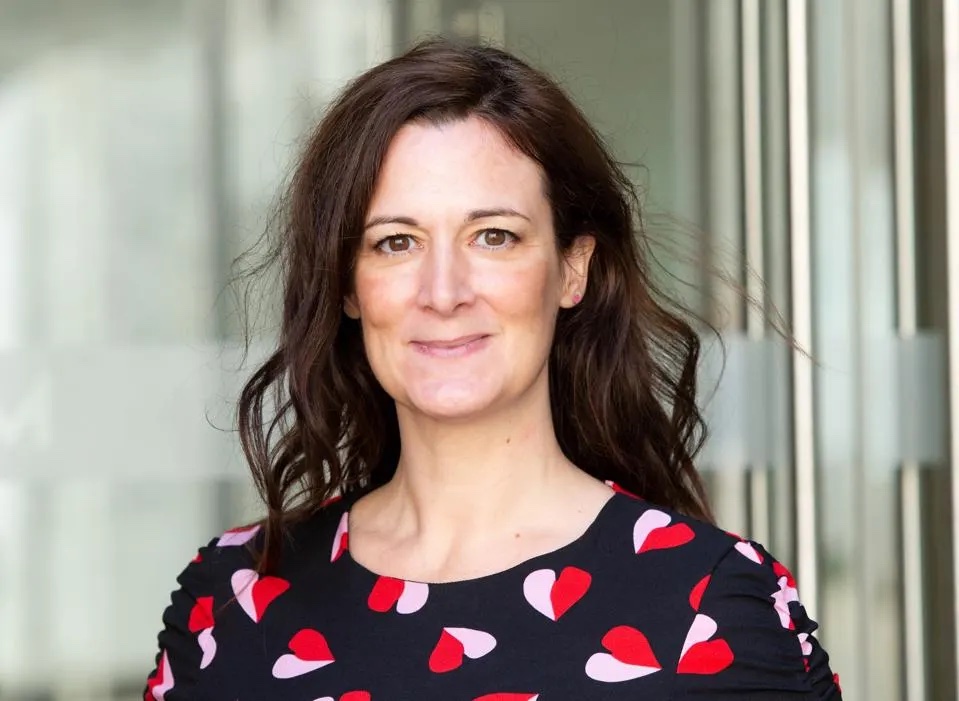
Back to life, back to reality
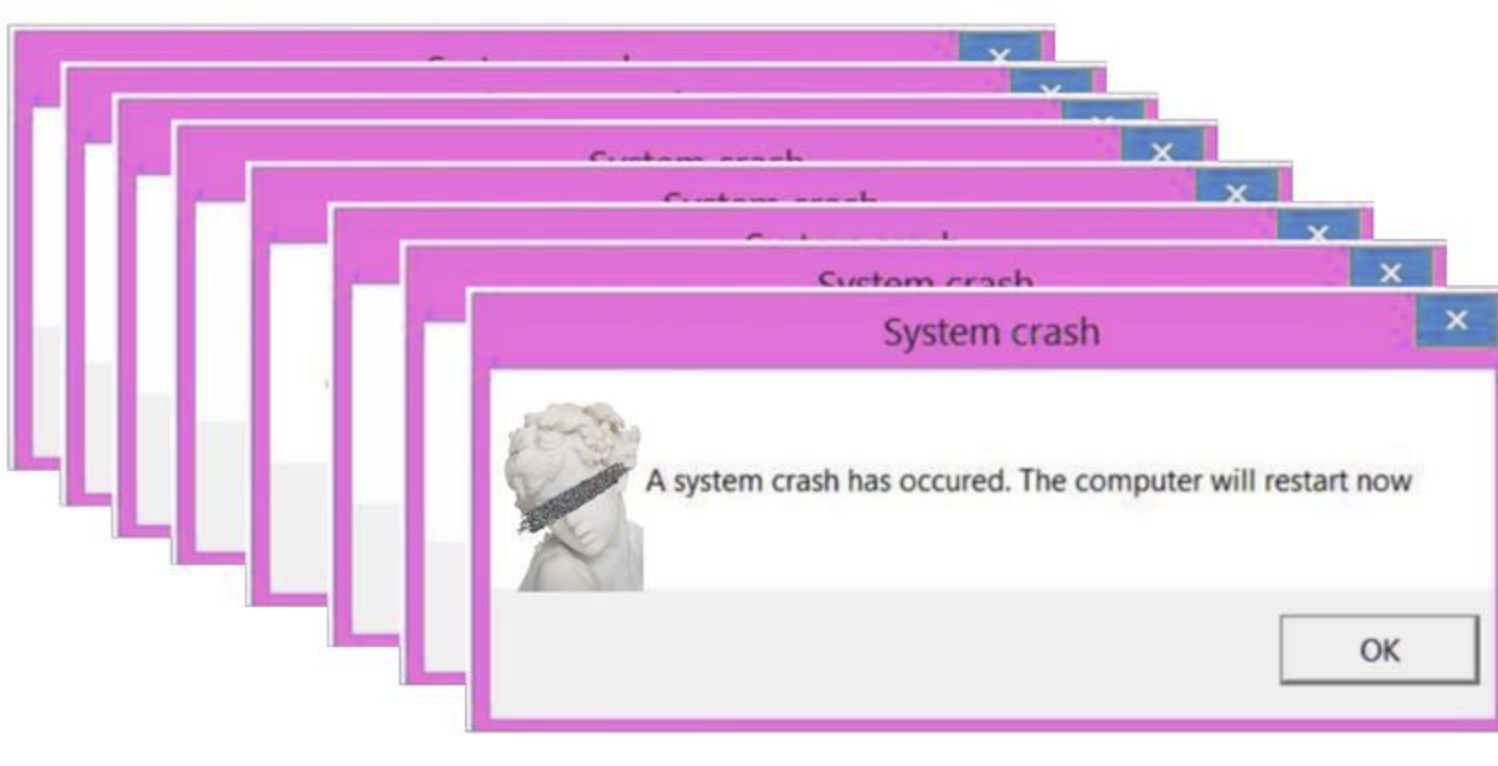
If you’re still here and I haven’t lost you in all the doom, congrats! I feel like you’re the kind of person who doesn’t want to be sent to parallel universes without your consent, or become fuelled with hate based on the distorted version of reality the algo is serving you.
Luckily for you, I spoke to Dr Kaitlyn Regehr, Associate Professor at University College London and author of Safer Scrolling about where we should go from here, and her response was so much more wholesome than I was expecting 😌
“We need to educate ourselves as much as possible, and then share that education with young people - but also ask them to share with us. I've spoken to young people who help their parents fact check videos that they're watching about the Middle Eastern War because they say their parents are consuming misinformation. So I think it’s a two way street where as a family, you work on that together.”
“I also think that mentorship around issues like online misogyny that is led by young people is a really powerful tool - for example older students mentoring younger students."
"There's this false narrative that young people are just completely consumed by social media and I think what’s often missed out is that young people are actually really critical digital citizens... elieli0000 is really pointing out this deep discomfort that she has with the algorithm, and I take so much hope in her fantastic critical analysis.”
Ultimately we need governments and Big Tech to act on this, but I also love that one way to join the fight against online misogyny is to spend more time with our friends and family 🥹💔
And it's not just Kaitlyn that's on this vibe. Alice Evans, Visiting Fellow at Stanford University and author of upcoming book The Great Gender Divergence, thinks cross-gender and IRL friendships can help reverse the gender divide.
Join the experiment 🔎🧪👀
We think elieli0000 started something amazing. Can you compare the comments underneath social media videos with your partner, family member or friend, ideally of a different gender? Are you getting different results? If so, we'd love to hear from you!
Send us a screenshot or screen-recording of both your screens on Insta, TikTok or email bigtechstories@the-citizens.com, plus any thoughts you have on why you and your loved one are living in parallel universes, and together we can uncover Big Tech’s dirty tricks!
Other actions you can take ✊
- Some problems are too big for us alone. If we want to kick misogyny out of the algorithm, we need to stop platforms from using our data to profile us. So get to know our 5 fixes to re-engineer the algos away from toxicity and towards something healthy in our lives, and ISD's ideas for how Big Tech can tackle online gender-based violence, from cross-platform cooperation to applying intersectional feminist knowledge to AI systems 👩🏽💻
- Read the Fix the Glitch Toolkit 3.0, a guide to help people understand and combat digital misogynoir during election campaigns (more on that in the next issue 👀) - and share it with your communities as well as local candidates, political parties and journalists.
- Meta and Instagram failed to act on 90% of abuse sent via Insta DMs to the women in a study by the Center for Countering Digital hate, and failed to act on any image-based sexual abuse within 48 hours. Demand action from Mark Zukerberg and co here.
People Vs Big Tech is a collective of more than one hundred tech justice organisations around the world. This means we’re putting together each newsletter with the help of some of the planet’s smartest and most respected experts in this field. Email bigtechstories@the-citizens.com if you have an idea for a Big Tech issue you'd like us to cover.

